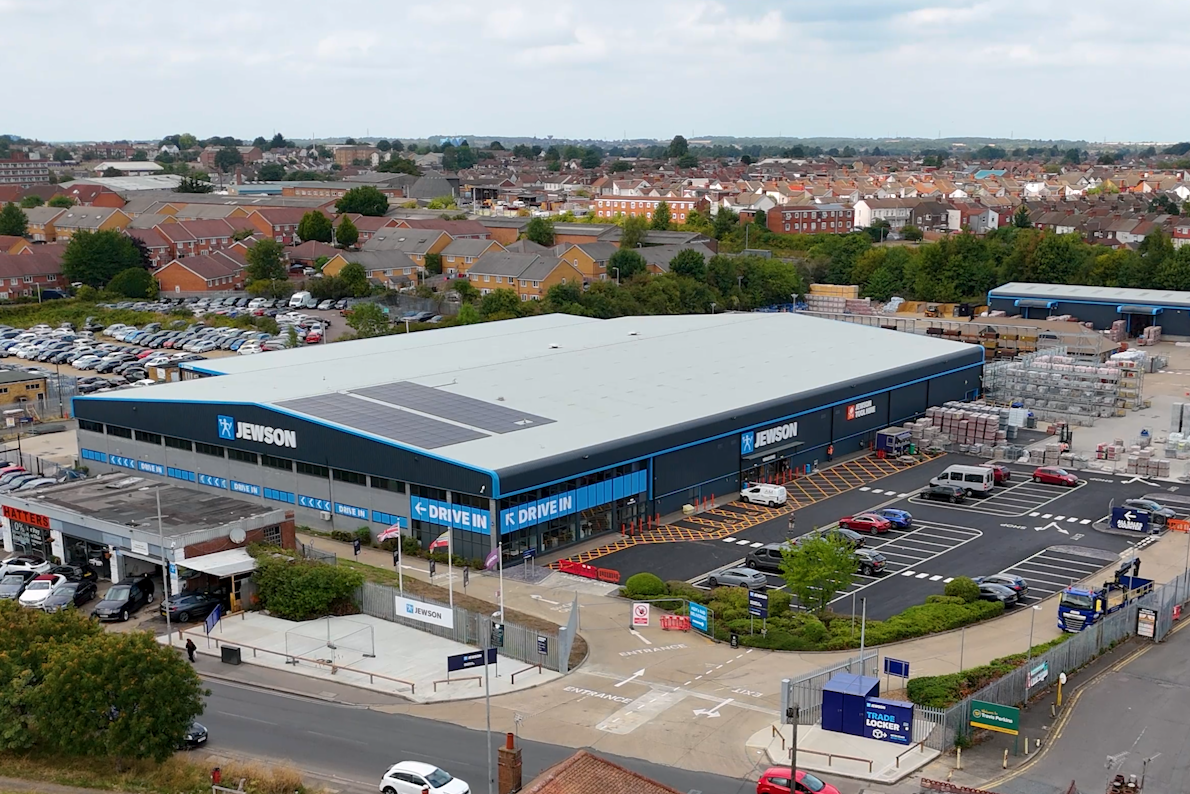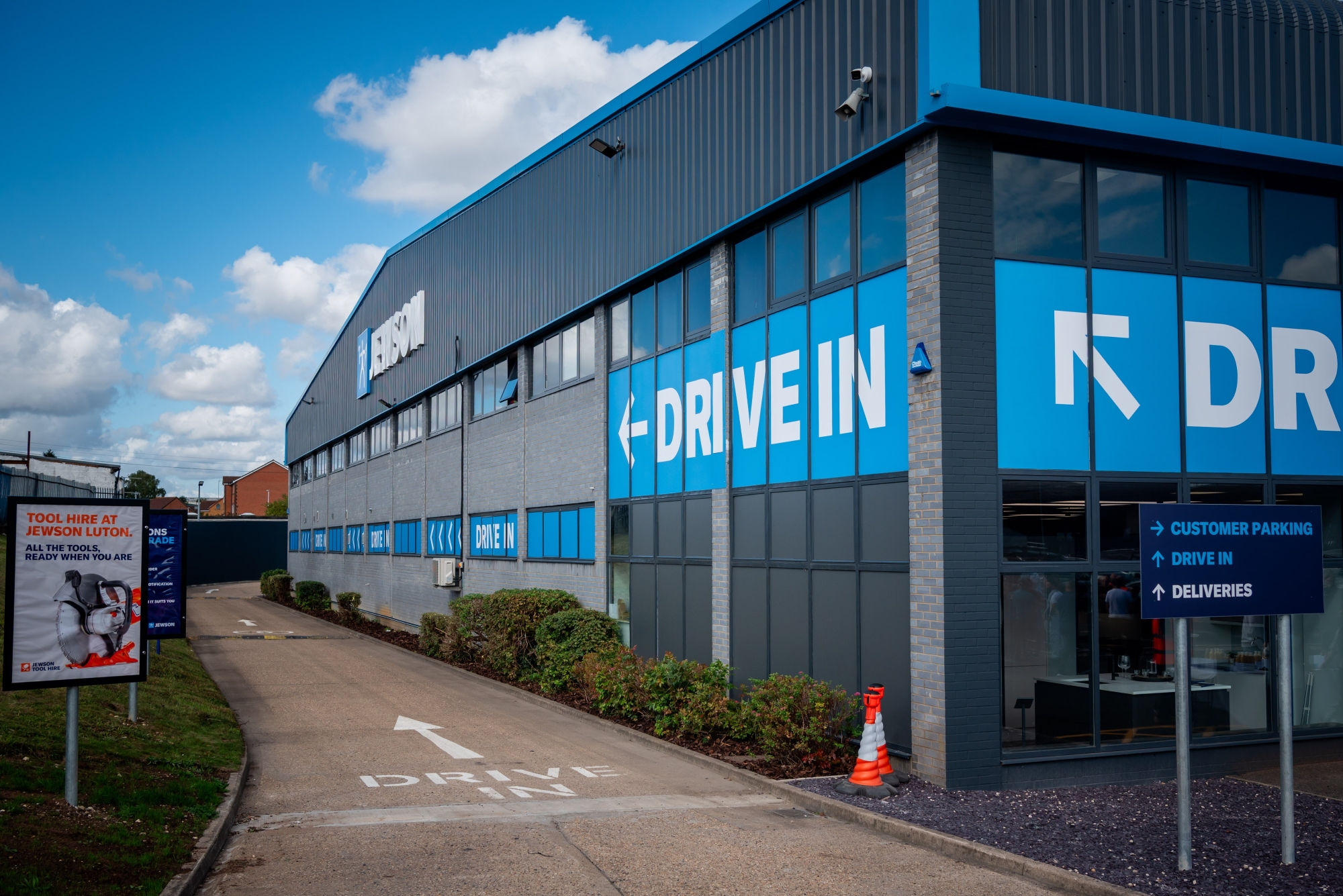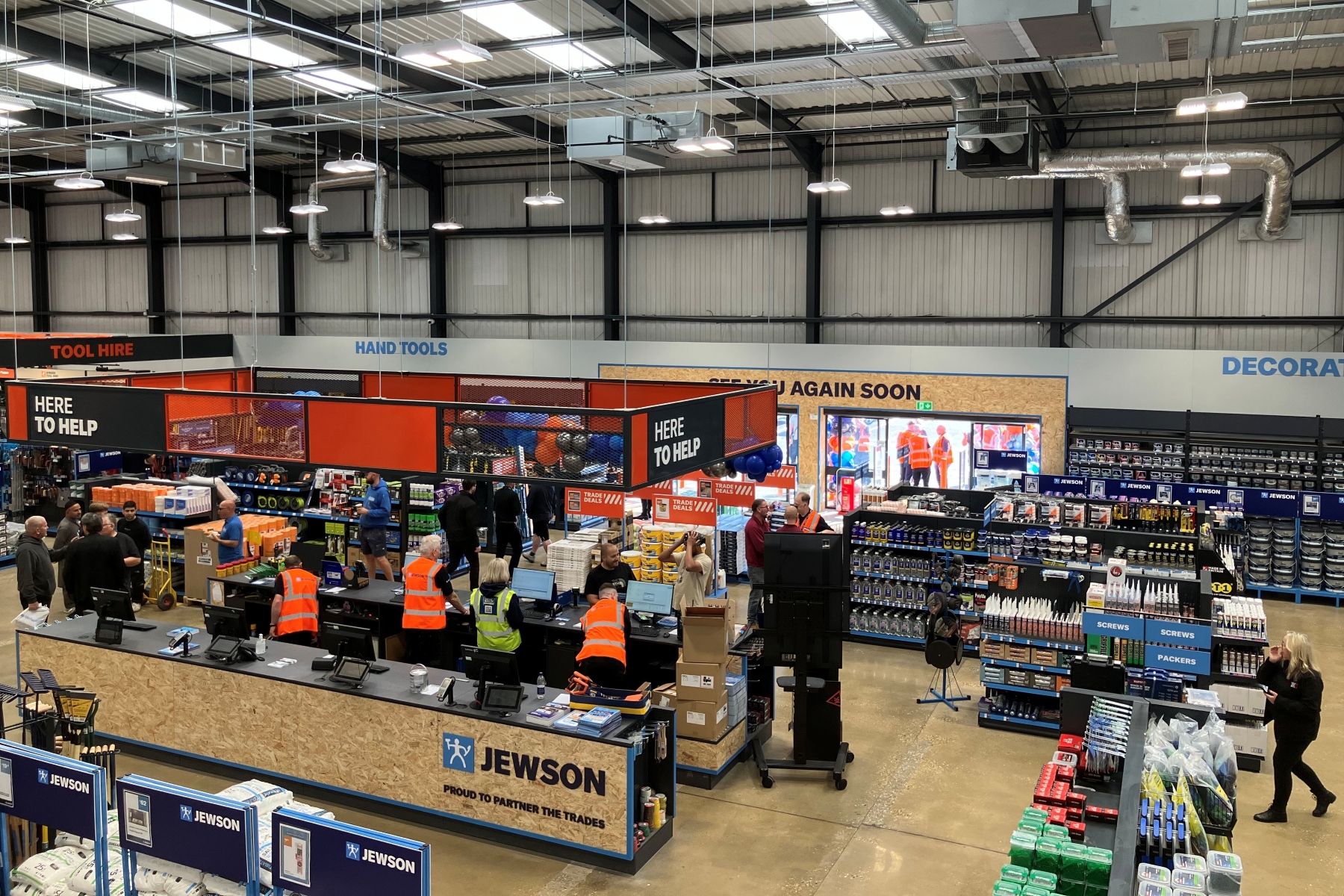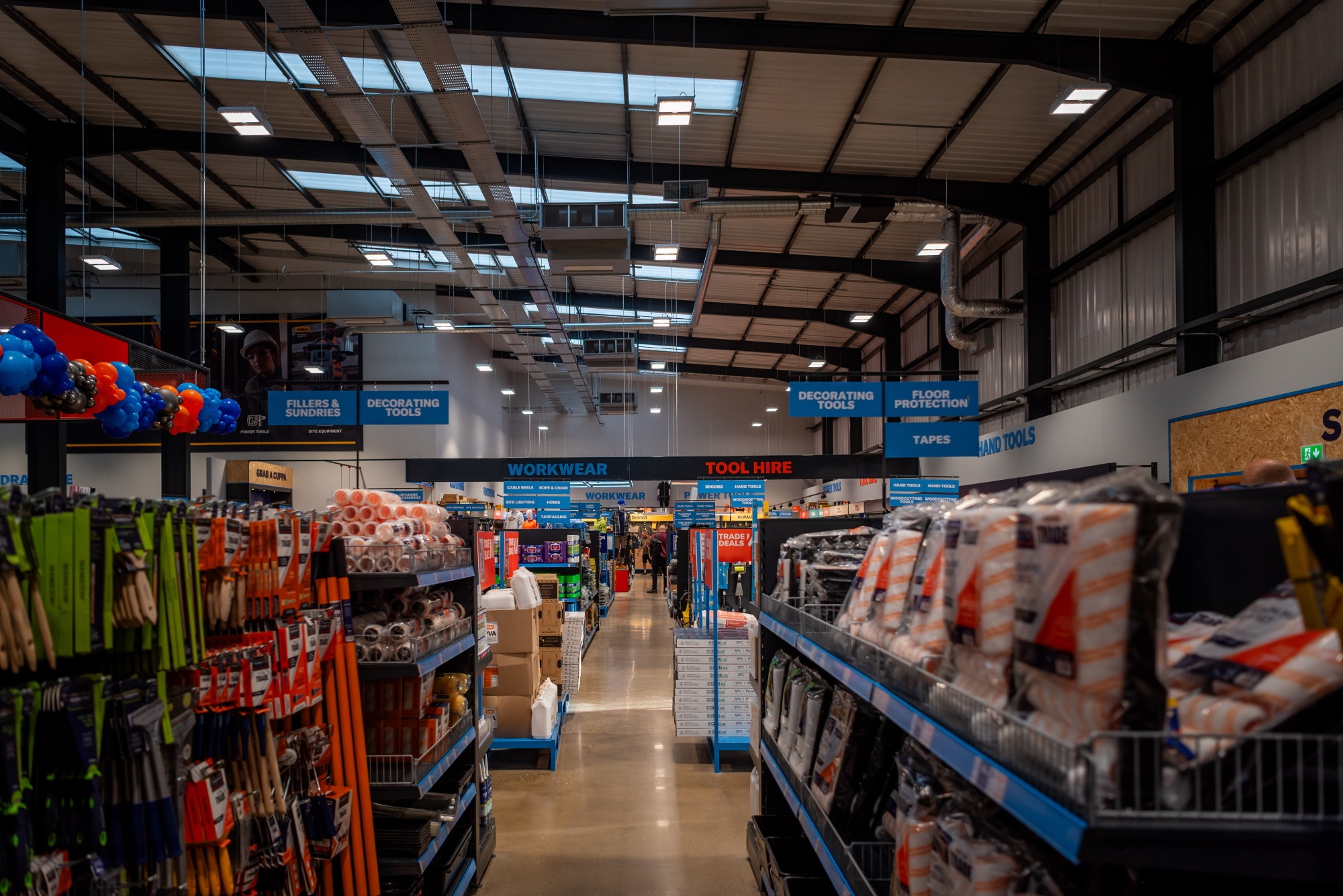
In an early teaser from the October issue of Professional Builders Merchant, editor Paul Davies discusses Jewson’s recently opened flagship branch in Luton, considering how some of the underlying reasons for its transformation should give the merchant sector at large pause for thought.
As featured on our front cover, Jewson has recently marked the official opening of its fully refurbished flagship branch in Luton. Our feature here gives the lowdown on what customers can expect to find at the 6.5-acre facility, but it is worth exploring the philosophy behind its development — and what it represents to the wider sector.
Holding some 11,000 SKUs and offering a full portfolio of building materials, the list of highlights includes a drive-in warehouse for undercover loading, a large and centrally-located trade counter, a dedicated workwear & tool hire area (complete with changing rooms, a logo printing facility and its own separate counter), paint mixing services and a bespoke kitchens & bathrooms showroom.
Features a little more ‘out of the ordinary’ encompass Jewson’s first ever ‘Sustainability House’ — a “full-scale demonstration home showcasing… information and guidance on the latest regulations and environmental standards” — in addition to project estimation support, 24/7 secure collection lockers and a free food and drink station.
The latest manifestation of Jewson’s Branch of the Future concept, the entire depot features defined product zones with clear signage, effective merchandising and an emphasis on brand presence. Significantly, the use of the Jewson name around the site becomes even stronger as a result. The welcoming, highly professional space — for staff and customers alike — has a real ‘identity’ and, despite its size, does not overwhelm.
Jewson says it took inspiration from the design of its parent company’s outlets in Scandinavia and Germany (in the best possible way, there is also a hint of an IKEA vibe going on…) whilst also fully engaging with its UK customers on what they wanted from a modern merchant, and the facilities that would encourage them to visit more frequently (part of the theory behind the transformation is to maximise the margin opportunities afforded by additional collect business).
Clearly, substantially increasing the overall product offering is a key part of that, made easier (in relative terms…) by the existing footprint and vast scale of this site in particular. Furthermore, there is a recognition that the style must be backed by the substance.
Improving the physical branches and infrastructure is one thing, but any successful outlet will be dependent on having knowledgeable, well-trained staff with the best customer relationship skills to make it work. This aspect too, we are assured, is central to the operation.
“Today’s tradespeople are different, and increasingly more ‘tablet in hand’ than ‘pen behind the ear.’ It is a change in attitude that means customer expectations have shifted accordingly and exponentially.”
As Jewson continues its transformation strategy, the broader point is what developments such as this can mean for the wider industry. Of course, many merchant businesses are also embarking upon their own developmental journeys, based on similar underlying principles — namely, that today’s tradespeople are different, and increasingly more ‘tablet in hand’ than ‘pen behind the ear.’
It is a change in attitude that means customer expectations have shifted accordingly, and exponentially. They are time-pressed, brand-conscious consumers with more purchasing options available; they are expert craftsmen or engineers who must contend with an array of legislative change and business admin pressures but who, as Stark Building Materials UK CEO John Carter notes “don’t have an army of people behind them…”
Perhaps now more than ever, they need their local merchant — whether part of a multi-national group or a single branch independent — to be a real partner that can fully understand their needs and requirements, delivering not just building materials but a fully comprehensive support service.
The branch environment is the most high-profile advert to say that the sector acknowledges this evolution. Jewson says it is raising the bar, and the underlying question is not just in rethinking what a merchant is but fully considering what a merchant can — and must — become.



This is a topic being addressed by leading industry consultant Steve Collinge at the BMF’s Annual Members’ Day Conference, with the event taking place as this issue went to press. We’ll naturally follow up in due course but ahead of time, Steve posted the following on LinkedIn and I think it is very relevant to repeat:
“This Thursday, I’ll be presenting on the subject ‘The Builders’ Merchant Branch of the Future’ at the Builders Merchants Federation Members Day at the Hilton Metropole in Birmingham.
Under the conference theme Engaging with the Future, what started out as an interesting discussion late last year, has turned into a true labour of love, a report filled to the brim with insights, initiatives, ideas and existing best practice.
Jointly sponsored by the BMF and L.E.K. Consulting, the Builders’ Merchant Branch of the Future provides both a vision and a practical roadmap to reinvent the Builders Merchant Model; because change is no longer an option.
“The builders’ merchant branch of the future has to evolve, from a place to pick up materials into a hub of convenience, personalistion, expertise and sustainability. Change is no longer optional. The next generation of Trade customers aren’t waiting for the industry to catch up, they are already redefining it.”










